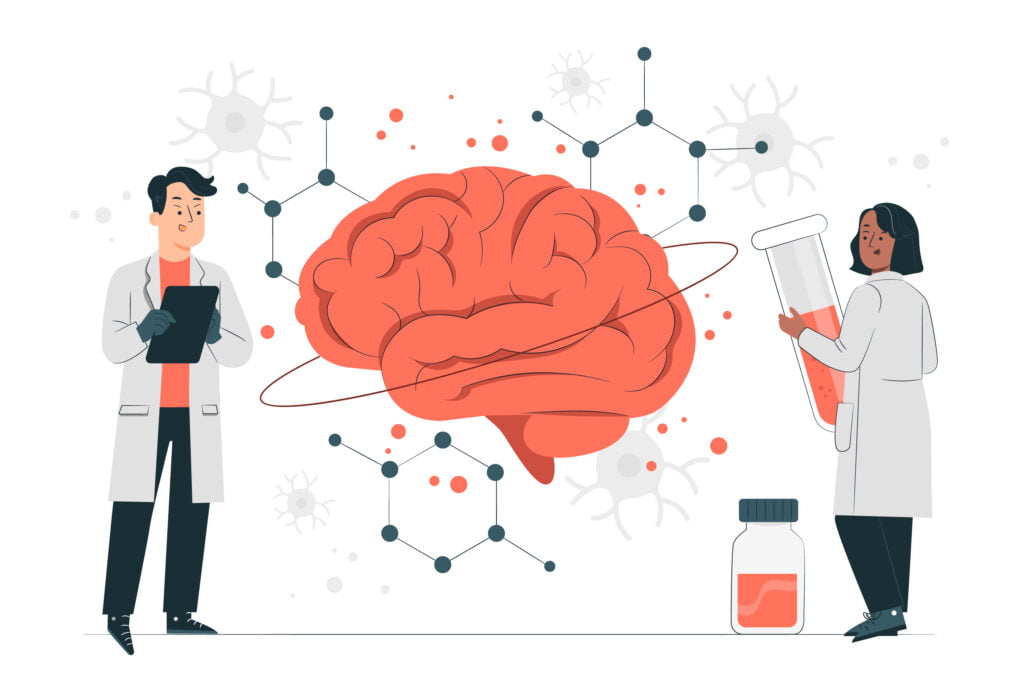FREE SHIPPING OVER $50
The Role of Psychobiotics in the Gut-Brain Axis as an Antidepressant
The gut-brain axis is a complex and interconnected system that links the gut and the brain. Recent studies have shown that the gut microbiota plays a crucial role in the communication between these two organs, and can significantly impact our mental health.
Psychobiotics, or probiotics that specifically target mental health, have emerged as a promising new treatment option for depression and anxiety. In this article, we’ll explore the gut-brain axis, the role of psychobiotics in depression treatment, and the best psychobiotic foods to support a healthy gut-brain axis.
The Gut-Brain Axis: An Overview
The gut-brain axis refers to the bidirectional communication between the gut and the brain. This communication is facilitated by linking your central nervous system with your enteric nervous system. The enteric nervous system is a complex network of neurons that governs the digestive system.
The gut also contains trillions of microorganisms, collectively known as the gut microbiota, which play a vital role in our physical and mental health.
Recent studies have shown that changes in the gut microbiota can affect brain function and behavior, leading to a growing interest in the use of psychobiotics to improve mental health.
The Intricate Workings of the Gut-Brain Axis
The gut-brain axis is a complex system of communication between the brain and the digestive system. It involves multiple components, including the vagus nerve, neurotransmitters, and the gut microbiome.
- The vagus nerve: The vagus nerve is a major part of the gut-brain axis, connecting the brain to the digestive system. It sends signals back and forth, regulating the gut’s functions and affecting mood and behavior.
- Neurotransmitters: Neurotransmitters, such as serotonin and dopamine, play a crucial role in the gut-brain axis. These chemicals are produced in the gut and travel to the brain, affecting mood, appetite, and digestion.
- The gut microbiome: The gut microbiome is made up of trillions of microorganisms, also plays a significant role in the gut-brain axis. It can influence neurotransmitter production, immune system function, and even the body’s response to stress.
Overall, the gut-brain axis is a complex and intricate system that involves many different components working together to regulate our mood and digestion.
The Role of Psychobiotics in Depression Treatment

Psychobiotics are probiotics or prebiotics that specifically target our mental health due to their interaction with our gut microbiome. These beneficial bacteria produce neurotransmitters, such as serotonin and GABA (gamma-aminobutyric acid), which have a calming effect on the brain. They also reduce inflammation in the gut, which has been linked to depression and anxiety.
Studies have shown that certain psychobiotics can improve mood and reduce symptoms of depression, making them a promising new treatment option for those struggling with mental health issues.
Best Psychobiotic Foods for a Healthy Gut-Brain Axis
Several anxiety-easing foods are rich in psychobiotics and can help promote a healthy gut-brain axis. Here are some of the best psychobiotic foods to add to your diet:
- Yogurt: Yogurt contains live cultures of bacteria that can help improve gut health and reduce inflammation.
- Kefir: Kefir is a fermented milk drink that is high in probiotics and has been shown to improve digestion and reduce anxiety.
- Kimchi: Kimchi is a Korean fermented vegetable dish that is rich in probiotics and can help improve gut health.
- Sauerkraut: Sauerkraut is a fermented cabbage dish that is high in probiotics and has been shown to improve digestion and reduce inflammation.
- Dark Chocolate: Dark chocolate contains flavonoids that can improve cognitive function and reduce stress.
FAQs
While psychobiotics show promise as a treatment for depression, they are not a cure. It’s important to consult with a healthcare professional to develop a comprehensive treatment plan.
Psychobiotics are generally safe, but some people may experience mild digestive issues, such as bloating or gas.
The effects of psychobiotics can vary depending on the individual and the specific strain of bacteria used. It may take several weeks to notice any improvement in symptoms.
Conclusion
The gut-brain axis is a complex system that plays a crucial role in our physical and mental health. Psychobiotics have emerged as a promising new treatment option for depression and anxiety, and there are several psychobiotic foods that can help support a healthy gut-brain axis.
Incorporating psychobiotic-rich foods into our diets can further support a healthy gut-brain axis and potentially improve our overall well-being. So the next time you reach for a snack, consider choosing one that’s not only delicious but may also support your mental health.



